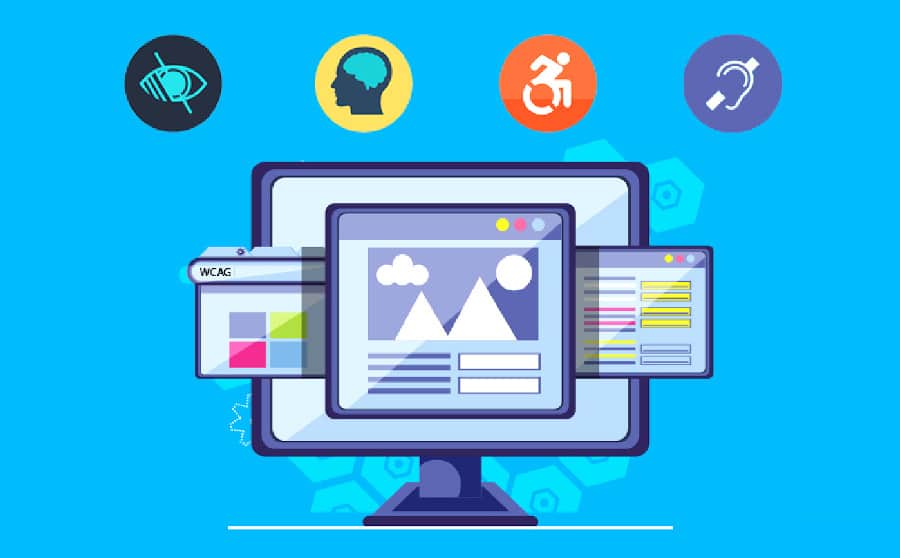How to choosing the Computer or Laptop for Needs
Choosing the right computer or laptop is a significant decision, and it's essential to align your choice with your specific needs.

In today's digital age, choosing the Computer or Laptop have become essential tools for work, education, entertainment, and communication. With the vast array of options available in the market, selecting the right computer or laptop can be a daunting task.
Whether you are a student, a professional, a gamer, or a casual user, making an informed decision is crucial to ensure that your device meets your specific needs. In this comprehensive guide, we will walk you through the essential factors to consider when choosing the perfect computer or laptop for your requirements.
Choosing the Computer or Laptop to Define Your Purpose:
Before delving into the technical specifications, it's essential to clearly define the primary purpose of your computer or laptop. Different tasks demand different configurations, so identifying your needs is the first step in making an informed decision. Here are some common use cases and their associated requirements:
a. General Use (Browsing, Email, Social Media):
- Recommended Type: Laptop or Ultrabook
- Minimum Specifications: Dual-core processor, 4GB RAM, 128GB SSD
- Ideal Screen Size: 13 to 15 inches
b. Productivity (Office Work, Content Creation):
- Recommended Type: Laptop or Desktop
- Minimum Specifications: Quad-core processor, 8GB RAM, 256GB SSD
- Ideal Screen Size: 15 to 17 inches (for laptops), 21 to 27 inches (for desktop monitors)
c. Gaming:
- Recommended Type: Gaming Laptop or Desktop
- Minimum Specifications: High-end quad-core or octa-core processor, 16GB+ RAM, dedicated GPU, SSD + HDD storage
- Ideal Screen Size: 15 to 17 inches (for laptops), 24 to 32 inches (for desktop monitors)
d. Graphic Design and Video Editing:
- Recommended Type: High-performance Laptop or Desktop
- Minimum Specifications: Powerful multi-core processor, 16GB+ RAM, dedicated GPU, fast SSD, color-accurate display
- Ideal Screen Size: 15 to 17 inches (for laptops), 27 inches or larger (for desktop monitors)
e. Programming and Software Development:
- Recommended Type: Laptop or Desktop
- Minimum Specifications: Quad-core processor, 8GB+ RAM, 256GB+ SSD
- Ideal Screen Size: 13 to 17 inches (for laptops), 21 to 27 inches (for desktop monitors)
Tips to choosing the Computer or Laptop Operating System:
The choice of operating system largely depends on your personal preferences and the software you need. The three primary options are Windows, macOS, and Linux.
- Windows: Windows is versatile and supports a wide range of software, making it an excellent choice for most users. It's especially popular for gaming and productivity tasks.
- macOS: If you are in the Apple ecosystem or require macOS-specific software, a MacBook is the way to go. macOS is known for its stability and user-friendly interface.
- Linux: Linux is an open-source operating system favored by developers and tech enthusiasts. It offers a high degree of customization but may not be as user-friendly for beginners.
Performance and Specifications:
The specifications of computer or laptop play a crucial role in determining its performance. Here are the key components to consider:
a. Processor (CPU): The CPU is the brain of your computer. For general use and office work, a mid-range processor should suffice. For more demanding tasks like gaming, video editing, or software development, opt for a high-performance CPU, such as Intel Core i7 or AMD Ryzen 7.
b. RAM: Random Access Memory (RAM) affects multitasking capabilities. For everyday tasks, 8GB of RAM is generally sufficient. However, for resource-intensive applications, aim for 16GB or more.
c. Storage: Solid State Drives (SSDs) are much faster than traditional Hard Disk Drives (HDDs). They significantly improve system responsiveness. Consider a laptop or computer with an SSD, and if storage space is a concern, choose one with at least 256GB.
d. Graphics Processing Unit (GPU): Integrated GPUs are suitable for everyday tasks and light gaming. However, if you're into gaming or graphic-intensive work, invest in a laptop or desktop with a dedicated GPU.
e. Battery Life: If you opt for a laptop, battery life is essential. Check reviews and specifications to ensure it meets your needs, especially if you need a portable device.
Portability for choosing the Computer or Laptop:
The portability of computer or laptop depends on your lifestyle. If you're constantly on the move, a lightweight and compact laptop is ideal. However, if your work or entertainment primarily takes place at a fixed location, a desktop with a larger screen and better performance might be more suitable.
Display Quality:
The quality of the display is crucial, particularly if you'll be spending a lot of time in front of your computer. Factors to consider include:
- Resolution: Higher resolutions (e.g., Full HD, 4K) provide crisper images and more screen real estate.
- Panel Type: IPS panels offer better color accuracy and viewing angles compared to TN panels.
- Refresh Rate: Gamers should look for laptops or monitors with high refresh rates (e.g., 120Hz or 144Hz) for smoother gameplay.
- Color Accuracy: Professionals working with graphics or videos should prioritize displays with accurate color reproduction.
Connectivity and Ports:
Consider the ports and connectivity options you need:
- USB Type-C, USB 3.0, HDMI, and DisplayPort are common ports to look for.
- For a laptop, check if it has enough USB ports and supports docking stations if needed.
- If you require an Ethernet port for a stable internet connection, ensure your laptop or desktop has one.
Budget:
Set a realistic budget based on your requirements. While it's tempting to go for the latest and greatest, remember that you can find excellent options in every price range. Be prepared to make some trade-offs between performance, build quality, and features within your budget.
Brand and Build Quality:
Reputable brands often offer better build quality and customer support. Do some research on the manufacturer's reputation and read reviews to get an idea of the durability and reliability of the device.
Upgradability:
Consider whether the laptop or desktop allows for future upgrades. Some laptops have soldered components, making it impossible to upgrade RAM or storage, while desktops are generally more upgrade-friendly.
Reviews and Recommendations:
Before making a final decision, read reviews and seek recommendations from friends or online communities. Real-world experiences can provide valuable insights into the performance and longevity of a specific model.
Choosing the right computer or laptop is a significant decision, and it's essential to align your choice with your specific needs and preferences.
By defining your purpose, considering the operating system, examining performance specifications, evaluating portability, display quality, connectivity, budget, brand, upgradability, and seeking reviews, you can make an informed decision that will serve you well in the long run.
Remember that technology evolves rapidly, so it's essential to strike a balance between getting the best available features and meeting your immediate needs.
What's Your Reaction?
















